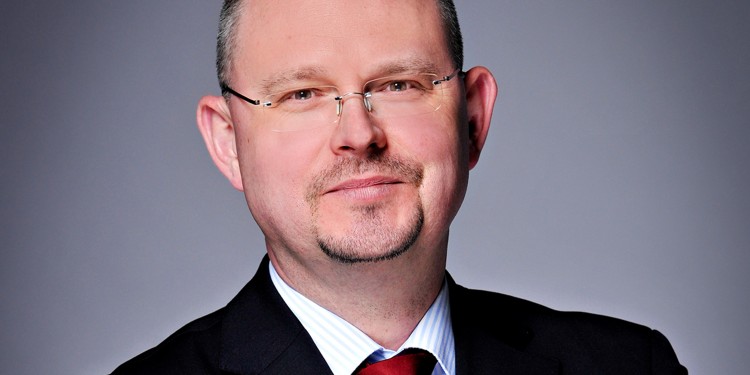
"The Humanities have always been pioneers to internationalization"
There is a quick, clear answer to any question about his roots: Abitur in Schweinfurt (Bavaria), then university studies, PhD and a professorship at the Universities of Erlangen, Canterbury, Cambridge and Cologne. But when asked about his cultural identity, Dr. Hans Beck, Professor of Ancient History and recipient of the Anneliese Meier Research Prize 2015 awarded by the Alexander von Humboldt Foundation, has to stop and think. For ten years now he and his family have been living in Montreal, Canada, since he accepted the offer of a professorship at McGill University there in 2005. Juliane Albrecht spoke to Hans Beck about his life in the different academic worlds, and about the Research Prize designed to advance the internationalization of Humanities and the Social Sciences in Germany – and which occasionally brings him to Münster University.
Did you have this longing for faraway places or for a change of scenery and cultures from an early age?
Right from my early days as a student I was lucky enough to be able to combine my studies with fascinating stays abroad, and this continued right through to when I became a professor. When I got the offer from McGill University in Canada, there wasn't really any question of a longing for faraway places. Shortly before, I had been in Washington DC for some time, so crossing the Atlantic wasn’t such a big step in my mind. But I have to admit that slipping from one culture into another is still something that fascinates me.
In the field of natural sciences everyone accepts that everything has to be done in English and that it has a global dimension. But how do internationalization and the Humanities go together for you?
In the old days, spending years abroad was the exception rather than the rule – for natural scientists too, incidentally. Nowadays, however, they’re considered to be a sine qua non to a certain extent. An academic world without internationalization is unimaginable today. But internationalization and English as a lingua franca are not the same thing. On the contrary: I think we need to make a distinction here between the practical issue of communication on the one hand – in English we have a robust language which makes global communication easier – and, on the other hand, the international contacts that exist between students and professors who are all bound up for their part in completely different academic cultures. They have their own traditions, accesses and expectations. Internationalization in this sense is diversity, not global uniformity.
Nevertheless: Have the Humanities not broadened their horizons sufficiently?
The Humanities have always been pioneers as regards programmes to strengthen internationalization. It started with Erasmus and it is still the case today. The European Masters Programmes are the best example. Of course, people often look at North America, and fascination with faraway places often colours their judgement. When you take a closer look, though, there are hardly any broadly based internationalization programmes in Canada and the USA which make it easier for students to make their way through the trials and tribulations of international CVs. The picture is completely different, however, as far as disciplines within the Humanities opening up their horizons is concerned. That is promoted much more in North America.
To what extent have German universities, and Münster in particular, opened up internationally, in your view?
I think German universities have had a reputation for some time now for having a certain dynamic in their internationalization. What I especially like about the German attitude is the relaxed way they go about things as a rule. Over the last twenty years the Collaborative Research Centres and the various Excellence Clusters have contributed to some very real paradigm shifts in the Humanities which have been widely adopted internationally.
Where, specifically, is internationality present – and important – in your subject of Ancient History?
For outsiders in the 1980s, Ancient History had the stigma of being a discipline that dealt with "dead white males", with objects having little or no social relevance. In the wake of the turnaround in cultural studies, however, the image has changed completely. Today we’re often right in the middle of broad debates in the Humanities which reach far beyond the borders of disciplines and academic traditions. We Ancient Historians have the advantage that researching the past is not linked to any particular national horizon, of whatever nature. Classical Studies are undertaken everywhere in the world. Internationality is the norm.
What will your international future be, now that you have the Alexander von Humboldt prize – also as regards being in Münster?
The primary aim of the Anneliese Meier Research Prize is to allow my research programme relating to the local worlds in Ancient Greece to evolve. The search for what is local is far more than an attempt to tell history in any old local context. It’s much more about immersing deeply in the local discourse between Greek polis communities. The project started in January and I’ve given quite a lot of lectures on it since then – in Europe, North America and Australia – to get a broad degree of feedback. A series of workshops is planned from 2016, beginning in Montreal. And, of course, in Münster, where I hope to be able to undertake research for several months next summer.
